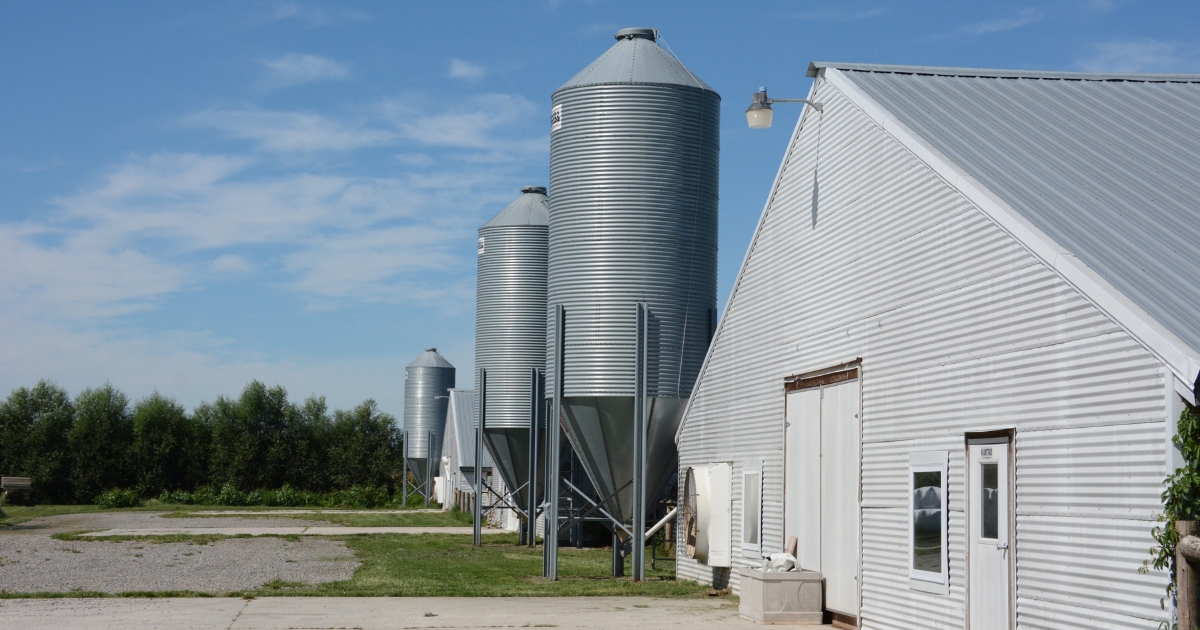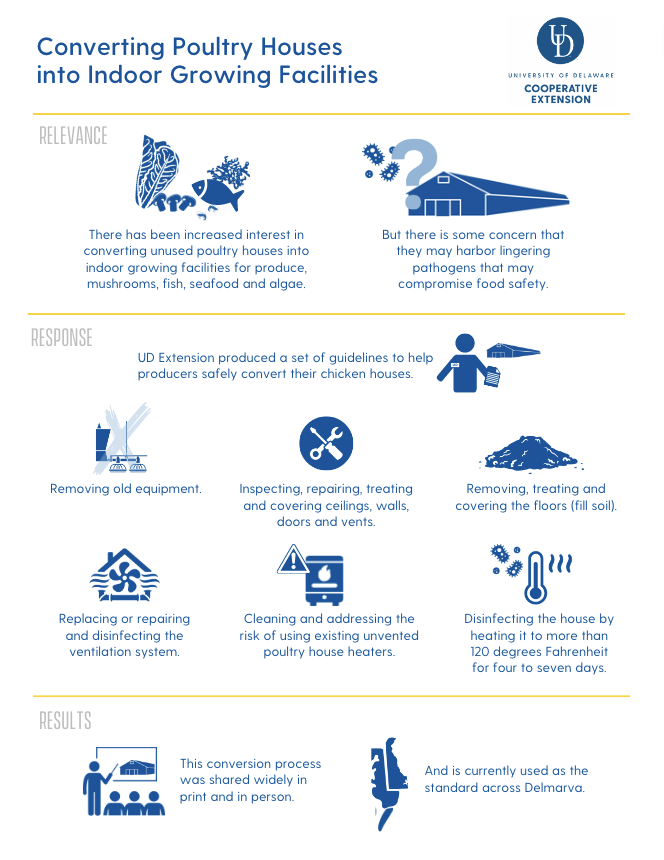
Converting Poultry Houses into Indoor Growing Facilities (2022)
- Health & Well-being
-
Agricultural Programs
- Agribusiness
- Animal Science
- Beginning Farmer Program
- Commercial Crops
- Commericial Horticulture
- Delaware Soil Testing Program
- Disease Management
- Farm Vitality and Health Project
- Irrigation
- Nutrient Management
-
Insect Pest Management
- Insect Trapping Program
- IPM Hot Topics
- Commercial Field Crop Insect Management
- Commercial Field Crop Disease Management
- Commercial Fruit & Vegetable Crop Pest Management
- EIPM Implementation Projects
- Pollinators
- Research and Extension Demonstration Results
- Brown Marmorated Stink Bug (BMSB) Management, Research, and Resources
- Publications
- Pesticide Safety Education Program
- UD Plant Diagnostic Clinic
- Variety Trials
- Weed Science
- Certified Crop Advisor Program
- Poultry Biosecurity
- 4-H
-
Horticulture
- Climate Variability and Change
- Delaware Soil Testing Program
- Forestry
- Lawn and Garden
- Master Gardeners
- Master Naturalist Program
-
Nutrient Management
- Nutrient Management Certification
- Continuing Education for Nutrient Management
- Nutrient Management Planning Resources
- Commercial Nutrient Handler Resources
- Poultry Litter and Manure Management
- Turf Management
- Agriculture Notebook
- Horticulture Handbook
- Agriculture & Horticulture Handbooks
- Crop Production
- Soil Fertility
- Delaware Climate Change Coordination Initiative (DECCCI)
- Salt Impacted Agricultural Lands

Converting Poultry Houses into Indoor Growing Facilities

RELEVANCE
With many poultry houses being retired or unused, there has been an interest in converting these houses into indoor growing facilities, following national trends that see facilities like warehouses converted for growing vegetables and herbs.
With lighting costs becoming more affordable, it may be possible to use these locations for hydroponic production of fruits and vegetables. There is also the potential to use facilities to produce mushrooms (without supplemental lighting) and for tank culture of fish, seafood and algae.
However, because these facilities were used for poultry production, there is some concern the facilities may harbor pathogens that may compromise food safety and lead to food-borne illness.
RESPONSE
To address public safety concerns, UD Extension produced a set of guidelines to help producers convert their chicken houses so they will be functional and food safe. These guidelines walk producers through testing for pathogens in the Salmonella species (the species found to survive longest in the environment), remediating and repairing the chicken house and re-testing after the process is complete.
Remediation and repairs include:
- Removing old equipment.
- Removing, treating and covering the floors (fill soil)
- Inspecting, repairing, treating and covering ceilings, walls, doors and vents.
- Replacing or repairing and disinfecting the ventilation system.
- Cleaning and addressing the risk of using existing unvented poultry house heaters.
- Disinfecting the house by heating it to more than 120 degrees Fahrenheit for four to seven days.
RESULTS
This information has been shared as a factsheet and featured in articles in UD Extension's Weekly Crop Update and the Delmarva Farmer. It has also been shared via in-person presentations at Delaware Agriculture Week.
This conversion process has also been adopted by economic development consultants in the region and is used as the standard across Delmarva. To date, three houses have been successfully converted in the region.
PUBLIC VALUE STATEMENT
Guidelines created to assist producers in converting their chicken houses to indoor growing facilities have been adopted as the regional standard, creating new opportunities for producers and mitigating the risk of foodborne illness.
FUNDING SOURCE / ACKNOWLEDGEMENTS
This work was funded in part by a grant from the University of Delaware Center for Food Systems and Sustainability.
The University of Delaware is an Equal Opportunity Institution and Provider. Visit UD’s Office of Equity & Inclusion to learn more.
Additional Links
531 South College Avenue Newark, DE 19716 (302) 831-2501
